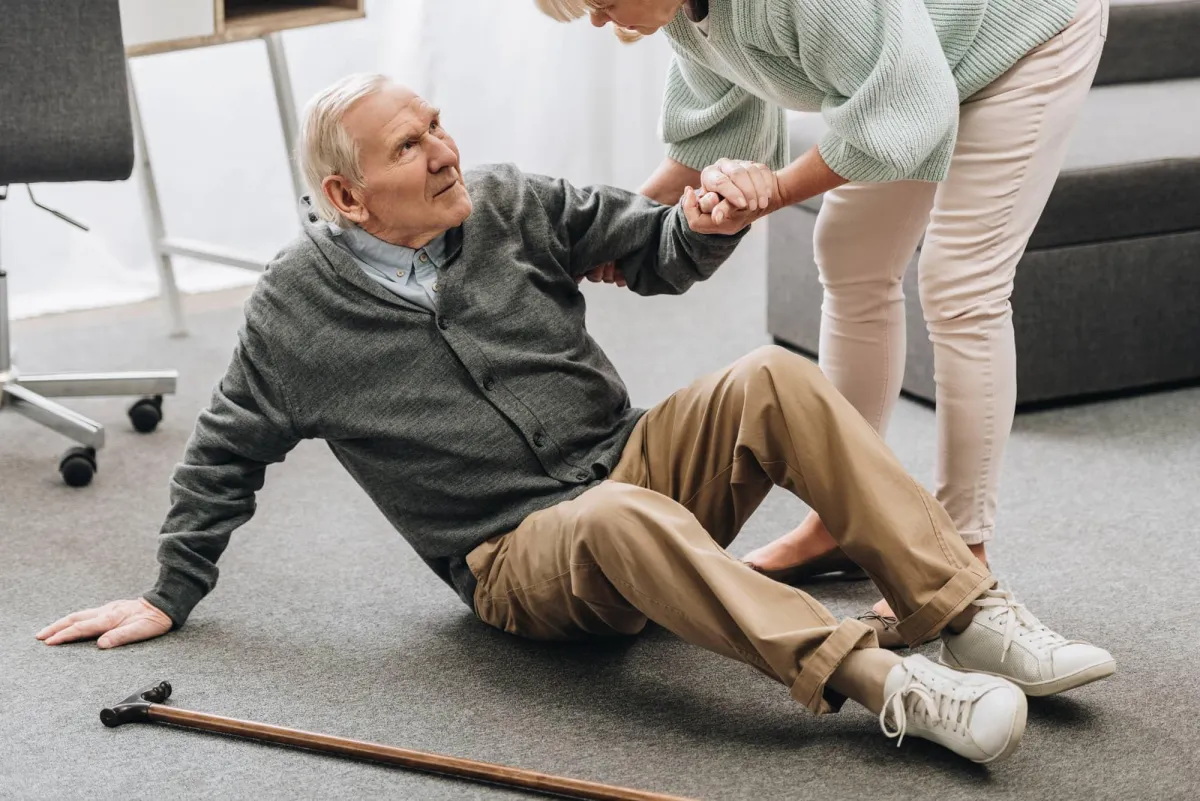
What Happens If My Parent Falls and Can’t Get Up?
How to Plan Ahead So One Fall Doesn’t Lead to a Crisis
It’s a scenario no one wants to imagine, but many adult children of aging parents eventually face it: Your parent has fallen. They’re alone. And they can’t get up. Now what?
This frightening moment can turn into a medical, emotional, and logistical emergency in seconds. Whether it’s a slip in the bathroom, a stumble in the garden, or a quiet collapse while trying to get out of bed, falls are the leading cause of injury among older adults. But the real danger often isn’t the fall itself, it’s what happens next.
If you’re caring for an aging parent, here’s what you need to know and how to prepare before the next call comes.
1. The Immediate Risk: Minutes Matter
When an aging adult can’t get up after a fall, the biggest threat becomes time. Lying on the floor for hours or overnight can cause:
Dehydration and pressure sores
Hypothermia
Muscle breakdown (rhabdomyolysis)
Panic and emotional trauma
According to the CDC, even falls without injury can lead to fear of falling again, which causes many seniors to limit activity, reducing strength and balance and increasing the likelihood of another fall.
Fast Action Tip: If your parent falls, stay calm. If they’re conscious and able, encourage them to slowly move to a seated position. If they’re injured or unable to move, call 911 immediately.
2. The Silent Struggle: What If No One Knows They Fell?
This is often the most haunting question. Seniors living alone or without regular check-ins may not be found for hours or even days. That’s why passive fall prevention isn’t enough. We must also plan for fall detection and response.
Solutions to consider:
Medical alert systems with fall detection can automatically call for help even if your parent can’t press a button.
Daily check-in routines: A simple phone call, text, or app-based check-in can be life-saving.
Smart home devices: Motion sensors and voice assistants can alert you to unusual patterns or a lack of movement.
Care Tip: Choose a fall alert system that works even in the shower, since many falls happen in the bathroom.
Try This: A Waterproof Fall Alert System That Works Everywhere
If your parent has ever fallen while showering or gardening, you know how scary it can be, especially if no one is around to help. One of the simplest and most effective solutions is a waterproof fall alert system. These devices allow seniors to call for help with the press of a button, even if they’re outside or in the shower.
👉 We recommend this one on Amazon. It’s waterproof, lightweight, and doesn’t require a landline. Families say it offers real peace of mind, and your parent might wear it, which is half the battle. Not to mention, it's an Amazon Best Seller.
3. After the Fall: What Happens Next?
If your parent is hospitalized, you may face a whirlwind of decisions fast:
Injury care (hip, head, or wrist fractures are common)
Short-term rehab or skilled nursing placement
Safety modifications at home
Assisted living or memory care evaluation
Many families find themselves overwhelmed, unsure whether their parent can return home safely or needs a higher level of care.
That’s where planning ahead makes all the difference.
4. How to Prepare BEFORE a Fall Happens
Being proactive reduces panic and improves outcomes. Start with these essential steps:
✅ Fall Risk Assessment
Ask your parent’s doctor to assess their balance, medications, and health conditions that increase fall risk.
✅ Emergency Plan
Make sure your parent knows who to call. Keep a copy of their medical information and emergency contacts in an easy-to-access place.
✅ Home Safety Check
Install grab bars, remove trip hazards, improve lighting, and ensure easy access to frequently used areas.
✅ Communication System
Even if your parent is independent, they should never be completely out of reach.
✅ Know Your Care Options
Understand the local senior care landscape. If a fall leads to rehab or long-term care, having researched options ahead of time helps you act fast.
5. When It’s Time for More Help
If your parent has already experienced a fall or even a near miss it may be time to revisit their living situation.
Ask yourself:
Are they safe at home alone?
Do they have trouble getting up from chairs or the bed?
Have they fallen more than once in the past year?
These are signs that additional care, such as assisted living or memory care
could reduce their risk and improve their quality of life.
Need help figuring it all out?
Book a Family Care Strategy Call to talk through your parents’ unique situation. You don’t have to do this alone.
Final Thought: One Fall Can Change Everything
But it doesn’t have to. With the right tools, conversations, and planning, you can reduce the chances that a fall turns into a crisis. You can also give your parent something we all deserve: safety, dignity, and a support system that works.
💡 Want a Head Start?
Download the free Senior Care Starter Kit for essential checklists, planning tools, and next steps. Because the best time to prepare is before the fall.
This post contains affiliate links. If you purchase through these links, The Aging Society may earn a small commission at no extra cost to you. We only recommend products we truly believe in.